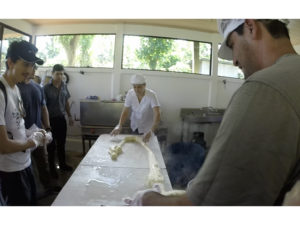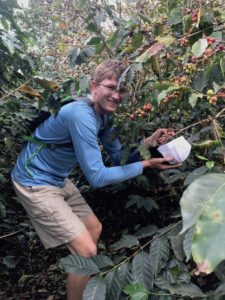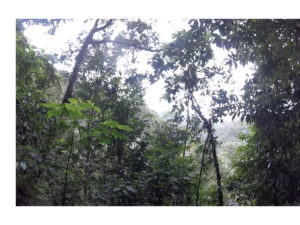Pura Vida – not just a greeting, a thank you, or a goodbye. In Costa Rica, this is a way of life. The phrase means many things to the Ticos but literally means pure life. Pureness in this country is at an all-time high and can be found around every winding road.
Ticos are native Costa Ricans and they have worked hard to maintain this name throughout their generations. The sustainability of their culture comes at the price of persistence and patience. This was confirmed when we visited a small farm run by a man named Chrisley. His 7.5-acre farm was passed down from his father. It produces many quality products that are native to Costa Rica. Chrisley taught us how to milk cows, produce cheese, grow numerous fruits and vegetables, and how to keep your family close throughout the process. He works hard Monday through Saturday to keep his farm running to provide for his family. His family is ever-present in the operation of the farm. He told us Sunday was their day to relax and reflect on the week of hard work, while they rewarded themselves with good food and quality bonding time.
Costa Rica sustains its economy with exportation of various products. One of their most important exports is coffee. Costa Rica collects about $370 million (U.S.) annually from coffee exports. The quality of their coffee is superior compared to many coffee products worldwide. Costa Rica also has one of the highest coffee yields. Costa Rica requires by law that farmers cannot grow anything below the standard of Arabica beans. These beans are of the highest quality and can only be grown in few places worldwide. The high altitude and warm climate in Costa Rica allows the beans to thrive, while the volcanic soils provide rich nutrients.
Even though Costa Rica is a very pure and organic country, it does have challenges. Costa Ricans way of living is composed of production through farming and agriculture. However, Costa Rica has beautiful rain forests that are essential to the land. Over the years many farmers looked to expand their production efforts and wanted to cultivate these areas. This is a huge conflict within the community and many steps have been taken to curtail their expansion. Laws such as the SETENA and MENAET have made it difficult for farmers to cut down certain trees to preserve the precious rain forests.
While in Costa Rica we stayed at the Soltis Center, a rain forest preserve bought by a former Aggie, Charles W. Soltis, who donated the resources to those seeking higher education. We explored this piece of land and learned of many species that depended on the habitat. This was an eye-opening moment and showed the true values of these precious rain forests.
Costa Rica is a unique country which keeps its traditions true throughout each generation. The country’s citizens produce what they need and never complain about what they do not have. They have sustained their native cultural heritages with the Pure Vida way of life.


